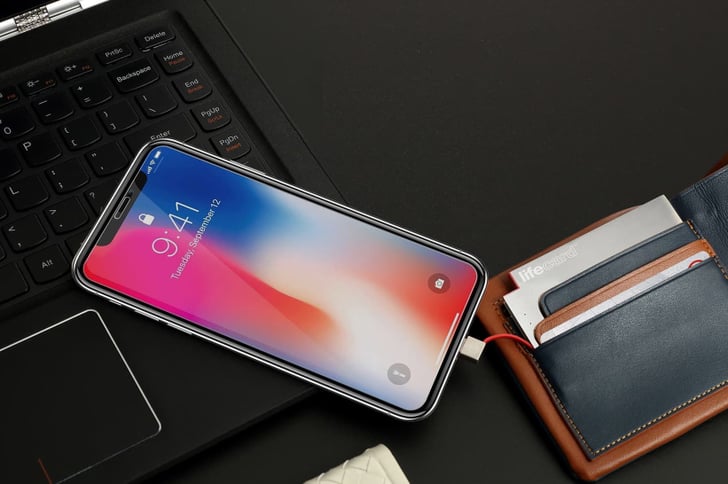
Smartphones have been a very popular gadget. This technology has changed everything from how we communicate and connect to the way we get our information. They are actually poised to transform our society. Smartphones have become an integral part of our daily lives thanks to their ability send and receive text messages and emails and to take photos.
Smartphones can run multiple applications simultaneously. This is one of their main advantages. They make it possible to stay in touch with family and friends no matter where you are. They can also increase the GDP of developing countries, making them a game-changer.
Despite the popularity of smartphones, there are still some issues with using them. One of these drawbacks is the fact that smartphones can distract from your focused attention. Studies show that distracted driving can increase the risk of an accident. There are also reports that they can cause brain injury.

Some people have developed a dependency on their smartphone. They find it difficult not to check their smartphone every few moments. Even those without smartphones cannot resist the temptation. A study showed that 82% of smartphone owners check their messages within 15 mins of waking up. It is therefore not surprising that a staggering number of car accidents are caused by mobile phone usage while on the road.
They were far from being mainstream when smartphones arrived on the market. The 1992 COMDEX computer tradeshow revealed the concept. Eventually, IBM released the Simon, which was the first "smartphone." It was the best smartphone of all time. It didn't do as well, however.
The iPhone, Apple’s original cellular telephone, was introduced in 2007. It featured a telephone, Internet browsing, and a multimedia player. Comparable to its predecessors the iPhone featured quad-band GSM cellular connectivity and an app store.
Another advantage smartphones offer is their ability transmit low-cost data. Today, a megabyte worth of data can be delivered over the air for as low as eight cents. Smartphones are able to sync with other devices and share data, making them great for business.

In the United States, half of the adult population owns a smartphone. Although they are relatively new devices, they are already changing the way we live. They are also the most popular gadgets.
Smartphones are a popular tool for improving productivity. Many apps are available to assist with word processing, note-taking and gaming. These apps can also synchronize with other devices. It is also possible to send files via Bluetooth.
For most people, however, the greatest benefit of a smartphone's ability to connect with us is its ability. It allows people to keep track and remind them about meetings, schedule appointments, and book appointments.
FAQ
What are the reasons I shouldn't believe all the hype about sales in online and offline shops?
Websites will sometimes inflate the initial price of an article to make it appear you are saving more than you actually are. You have to do your homework and ensure you get accurate prices. Simply add the item that interests you to your cart and make sure it does not get lost. After you have done this, Google the name of the designer as well the type product you are looking for. The amazing deal that you thought you were getting may not be so great after all. You might be able find the same item for less.
How to avoid online fraud when using credit cards
If you use credit cards online, make sure you check your statements carefully before making purchases. You should only pay what you actually owe. Regularly check your bank statement to find out if anything is suspicious. If you are suspicious of unusual charges, please contact your card company immediately. They will often cancel the transaction, and then refund any money that was taken from your account.
Contact your local police department if you believe you have been scammed. The Federal Trade Commission can also be contacted.
Where can I get coupons for online shopping
There are two ways to find coupons for online shopping: 1) Go directly to the website of the company you plan to purchase from; 2) Search Google for coupon codes. Both methods work. However, certain websites may be easier than others.
How can I get the most value for my money when buying clothes online?
There are several things you can do to ensure you get the most value for your money when buying clothes online. You should first take advantage of free shipping offers offered by certain retailers. These promotions often include free shipping within Australia.
Before you make a purchase, be sure to check the return policy. Some websites allow for returns within 30 days. Others do not offer refunds.
Third, look into customer reviews of the retailer you're considering buying from. You will be able determine whether the retailer is trustworthy and reliable.
Fourth, compare prices between different retailers. There are many comparison websites that allow you to compare prices from different retailers side-by-side.
Keep in mind, too, that certain brands and types of clothing may have sales or coupon codes. For any additional deals, check the website regularly.
When is the best time to shop online?
The best day to shop for clothes online is Sunday because you have time to browse around all the different stores and find what you want. Monday is the best day to shop online for clothes. Last-minute shopping is best done on Tuesday. Wednesday is when you should start buying for Christmas. Thursday is when you should start planning for Easter. Start preparing for summer holidays by planning for Friday. Saturday is the best day to prepare for the school holidays. And finally, on Sunday, you should finish off any remaining tasks for the week.
Statistics
- All items on AliExpress have an estimated delivery time on the product page, and it's usually anywhere from 20 to 60 days. (makeuseof.com)
- Your Online Purchases 79% of Americans purchased goods and services online in 2018, which is expected to exceed 90% in 2023. (meetfabric.com)
- According to the Federal Trade Commission (FTC), online shopping was the fourth most common fraud category for consumers as of February 2022.5 (thebalance.com)
- Last Black Friday, I bought a stove from Lowes at 40% off, receiving 24 months of interest-free financing (from Lowe's). (meetfabric.com)
External Links
How To
How to shop online safely
Online shopping is one the easiest ways to purchase goods and services. However, online shopping comes at a high cost. Online shopping has many advantages, but there are also risks. Identity theft is the most serious risk. Identity theft is the most serious risk. Identity thieves will use your personal data (names, addresses, credit cards numbers) to steal your money or take out fraudulent loans. They will then sell your stolen information to the black market. Here are some tips to help you keep your business online safe.
-
Secure websites. SSL encryption is free for most online stores. This means any information entered into their site, such as names, addresses, phone numbers, credit card details, etc., is encrypted so only you can see it. It blocks anyone from seeing the information you enter. When you are choosing an online store to do business, make sure they have a valid certificate from a recognized CA. When browsing the internet, look out for the green padlock icon near the URL bar.
-
Your password should not be divulged. When you sign up to a new account, an email will usually ask you to confirm your email address or username. Make sure you don't share these credentials with any third party. Don't keep them in your wallet. They could also be used to access your accounts if you lose your wallet. Instead, store them on your computer. A good rule of thumb is to change your passwords once every three years.
-
Keep track of your orders. Track your orders if you are sending items to others or yourself. Many people fall prey to fraud by believing that they sent something to themselves but it was actually sent to someone else. Always check the tracking number before you pay for shipping. Never ship anything without receiving proof of delivery. If you aren’t satisfied with your service, contact the company as soon as possible.
-
Know who you're dealing with. Many websites will require sensitive information from you, such as your name, date of death, Social Insurance Number, and bank routing numbers. These details help them identify you, so be careful about giving them out. Google "what's the need?" to determine if a website has this information. You'll find many answers.
-
Pop-up windows are a danger. Pop-up windows can bombard you with offers and special deals from many sites. Some of these ads may seem legitimate, but others are designed to trick you into revealing private information. For example, a fake anti-virus program could ask for your banking information, credit card numbers, and social security number. To avoid being tricked, don't click any suspicious links.
-
Phishing scams are to be avoided. Phishing scams involve hackers posing as reputable companies to trick consumers into handing over their financial information. Phishers can send emails that look suspiciously like they are from banks or retailers. They encourage users to log on and update their account information. Hackers can gain control of your finances once your information is given. Hackers could even take over your bank accounts or transfer funds from one account to another. You can find many resources on how to spot a phishing scheme, including How To Spot a Fake E-mail Scam.
-
Do your homework. Before signing up for a deal, always read the fine print. The terms and conditions of any contract you agree to must be clear and easy to understand. Make sure to read all information and understand exactly what you're agreeing. Saving money is as simple as avoiding hidden fees and charges.
-
Always shop around. Shop around. Compare prices on many websites to find the best deal. If you order multiple items, make sure to compare shipping costs. Shipping costs will vary depending on which website they are from. It's worth paying a little extra for fast shipping.